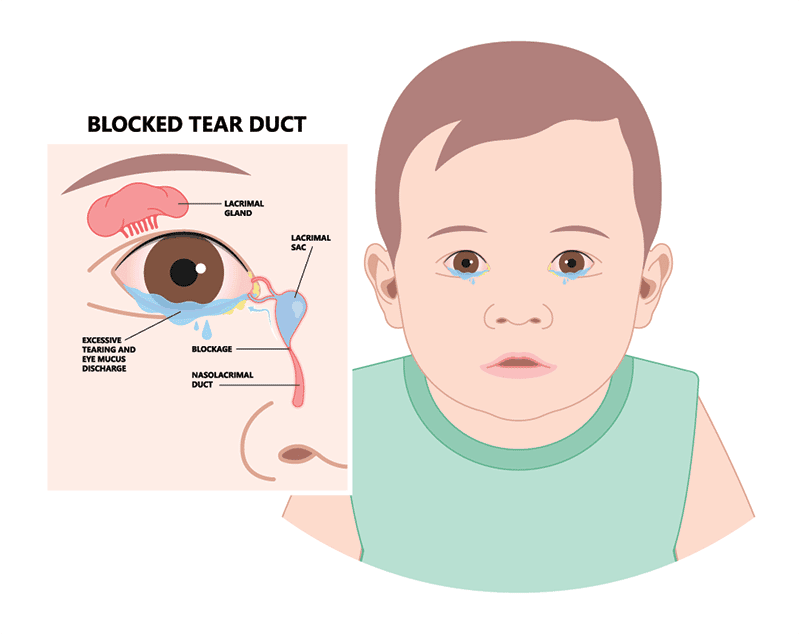The tear (nasolacrimal) duct drains tears from the surface of the eye down into the nose. Approximately 15% of children are born with tear duct obstruction.

his condition causes symptoms of excessive tearing and discharge from the eye. The symptoms tend to develop within a few weeks after birth, but may sometimes be delayed several months or, rarely, a few years. Excessive tearing may occur at any time during the day but may be worse when outdoors.
Discharge can be significant at times and usually accumulates when a child sleeps. This discharge by itself does not signify an infection but infectious symptoms, such as redness of the eye or eyelid, may develop. Approximately 90% of children with tear duct obstruction will outgrow the condition in the first year of life. Vision can be affected by tear duct obstruction but not commonly. A complete eye examination is warranted if your child has persistent symptoms.
Treatment of tear duct obstruction will involve probing of the tear duct if the condition does not spontaneously resolve. Tear duct probing can be performed in the office without anesthesia in young children—up to about age 4 to 6 months—or can be performed after the age of one year in an operating room with anesthesia. The procedure is low risk, involves no incisions or stitches and is highly successful.
Wheaton Eye Clinic’s unparalleled commitment to excellence is evident in our continued growth. Today we provide world-class medical and surgical care to patients in six suburban locations—Wheaton, Naperville, Hinsdale, Plainfield, St. Charles, and Bartlett.
(630) 668-8250 (800) 637-1054